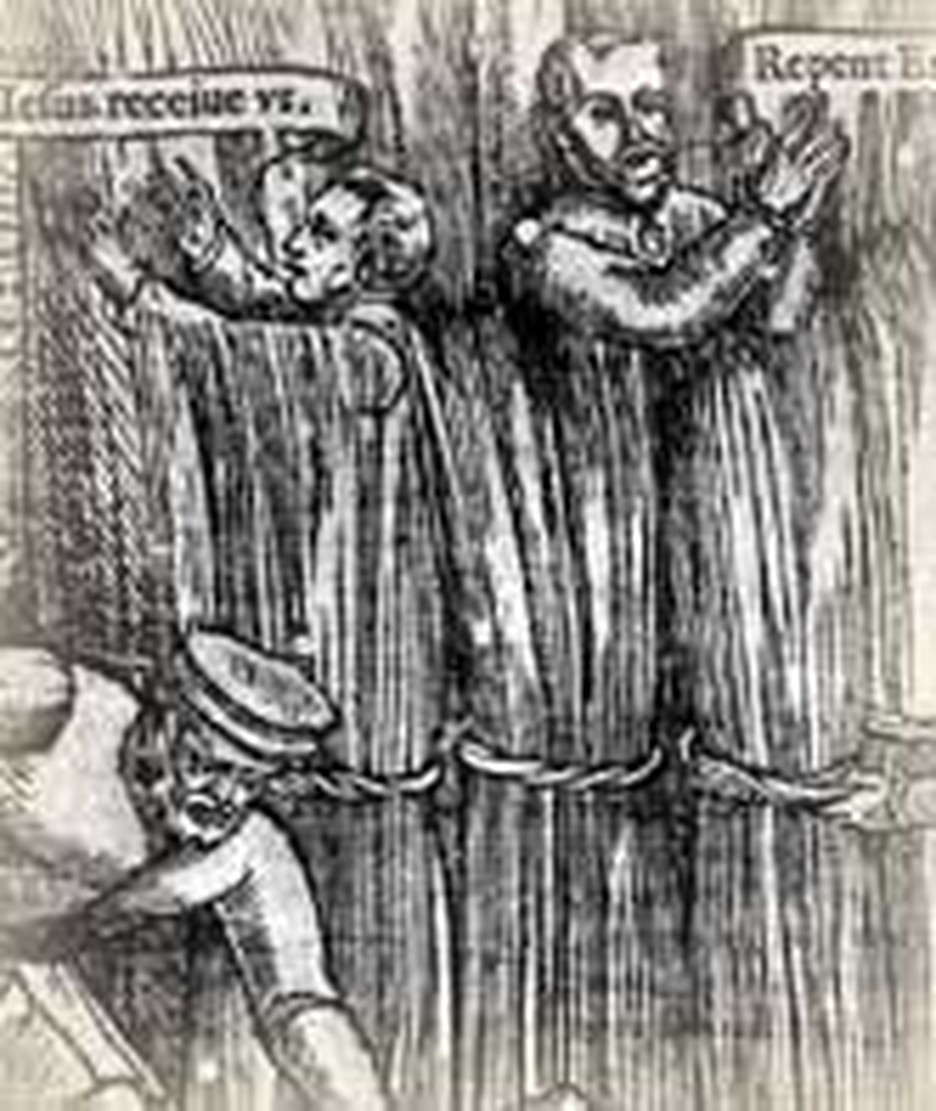
The sheriff feared a riot if he moved John Bradford while most people were still out in the streets. And so he had his soldiers transfer the condemned man to Newgate Prison around midnight. Despite the government's attempt at secrecy and the late hour, thousands of the good man's supporters lined the way. There was no riot.
A rumor sped through the streets that John would be burned to death at 4 a.m. the next morning. Indignant crowds gathered before the crack of dawn, filling the streets around Smithfield, the place of execution. Among them were Catholics, outraged because the charges against the Protestant preacher were so obviously trumped up.
When Mary, the Catholic queen, had ascended the English throne after the death of Protestant Edward VI, she immediately took steps to restore the Roman Church. Some of the Catholic preachers were not well received. One named Bourne had a dagger hurled at him when he spoke. Terrified, Bourne asked John to calm the crowd. John did so and shielded Bourne with his own body. After rebuking the mob, John Bradford and John Rogers led the trembling Bourne to safety.
"You save him that will help to burn you!" warned one of Bourne's enemies. And that is what happened. Three days later the crown accused John Bradford, the man who had helped calm the situation and who had saved Bourne's life, with trying to stir up the mob! John was imprisoned in the tower of London.
In the tower, the tender-hearted preacher studied his Bible daily and preached often to the other prisoners. He shared his money with them. When he saw thieves and murderers taken to the gallows, he would say, "But for the grace of God, there goes John Bradford." He was so trusted by the jailor that the man actually let him out twice to tend to religious needs, simply on the strength of his word. John always hurried back before the promised time.
In prison, John wrote constantly--letters and sermons. The Earl of Derby complained "that he has done more hurt [to Mary's cause] by letters, and by exhorting those that have come to him in religion, than ever he did, when he was abroad, by preaching."
With soldiers lining the way on this day, July 1, 1555, John was led to his death. He asked permission to give his clothes to his poor servant. It was all he had left. That done, he was bound to one side of the stake and another Protestant witness, John Lease on the other side. John Bradford turned to his partner and said "Be of good comfort brother; for we shall have a merry supper with the Lord this night!" He prayed to be worthy of the Lord in death and quoted Christ's words, "Strait is the way, and narrow is the gate that leads to eternal salvation, and few there be that find it." Soon afterward, he was in eternity. Evangelical churchman J. C. Ryle ranked Bradford's writings up with those of the great Anglican theologians Latimer, Hooper and Jewel.
Bibliography:
- Forbush, William Byron, editor. Fox's Book of Martyrs. Philadelphia: John C. Winston, 1926.
- "John Bradford." http://www.manchester2002-uk.com/celebs/ philanthropy3.html
- "John Bradford." http://www.britannia.com/bios/bradford.html
- "Life of Master John Bradford." http://www.ccel.org/b/bradford/writings/life.html
- Ryle, J. C. Five English Reformers. Banner of Truth, 1961.
Last updated July, 2007







